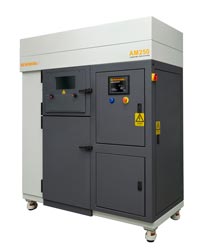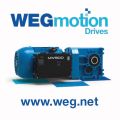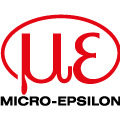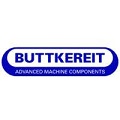
Posted to News on 27th Jun 2012, 11:39
Swansea University invests in additive manufacturing technology
Renshaw's AM250 laser melting machine uses a high-powered ytterbium fibre laser to fuse fine metallic powders into 3D objects

Renishawis is announcing the sale of an AM250 laser melting machine to Swansea University, one of the UK's top research universities. The AM250 allows the construction of fully dense, highly complex metal parts and structures that would be not have been possible to build using traditional subtractive manufacturing techniques.
The system will be used by a new "Aerospace & Manufacturing' multidisciplinary research team within the University's College of Engineering. Part of the team's focus is the ASTUTE (Advanced Sustainable Manufacturing Technologies) project, a pan-Wales joint initiative part-funded by the EU's Convergence European Regional Development Fund through the Welsh Government. The aim of the project is to promote growth within the manufacturing industry in West Wales and the Valleys by adopting more advanced technologies.
Johann Sienz, as Director of ASTUTE and Professor of Aerospace and Manufacturing at Swansea University says: "The project targets the aerospace, automotive and high-technology sectors and aims to create sustainable, higher-value goods. By applying Advanced Engineering techniques, such as additive manufacturing, to both the design of products and to the production process, the project aims ultimately to create new skilled jobs in the manufacturing sector in Wales."
Renishaw's additive manufacturing (AM) technology is a digitally driven process that uses a high-powered ytterbium fibre laser to fuse fine metallic powders into 3D objects, direct from 3D CAD data. The metallic powder is distributed evenly across the build plate in layer thicknesses ranging from 20-100 microns forming the 2D cross-section. The layer of powder is then fused using the laser in a tightly controlled atmosphere. The process is repeated, building up parts of complex geometries, layer by layer.
The application for laser melting is vast: from producing quality prototypes to creating bio-compatible orthopaedic implants. A key advantage is that component design need no longer be driven by the constraints of traditional machining techniques, giving the opportunity to rethink the concept of "design for manufacture'.
Simon Scott, Director of Renishaw's Additive Manufacturing Products Division says: "Renishaw is very pleased to have won this tender against strong competition from other additive manufacturing suppliers. There is great potential for additive technologies, and through the work of centres of excellence like Swansea University, the global possibilities to improve energy efficiency and product performance can be thoroughly investigated."
For further information about the ASTUTE project, please visit www.astutewales.com. To find out more about Renishaw's additive manufacturing products and the AM250 laser melting machine, please visit www.renishaw.com/additive.






























